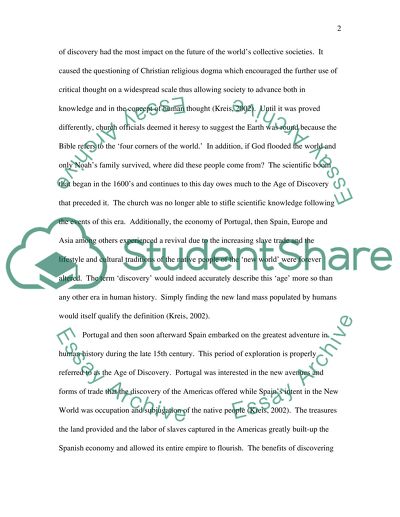Cite this document
(“The Age of Discovery Essay Example | Topics and Well Written Essays - 1750 words”, n.d.)
The Age of Discovery Essay Example | Topics and Well Written Essays - 1750 words. Retrieved from https://studentshare.org/history/1539324-see-attached
The Age of Discovery Essay Example | Topics and Well Written Essays - 1750 words. Retrieved from https://studentshare.org/history/1539324-see-attached
(The Age of Discovery Essay Example | Topics and Well Written Essays - 1750 Words)
The Age of Discovery Essay Example | Topics and Well Written Essays - 1750 Words. https://studentshare.org/history/1539324-see-attached.
The Age of Discovery Essay Example | Topics and Well Written Essays - 1750 Words. https://studentshare.org/history/1539324-see-attached.
“The Age of Discovery Essay Example | Topics and Well Written Essays - 1750 Words”, n.d. https://studentshare.org/history/1539324-see-attached.


